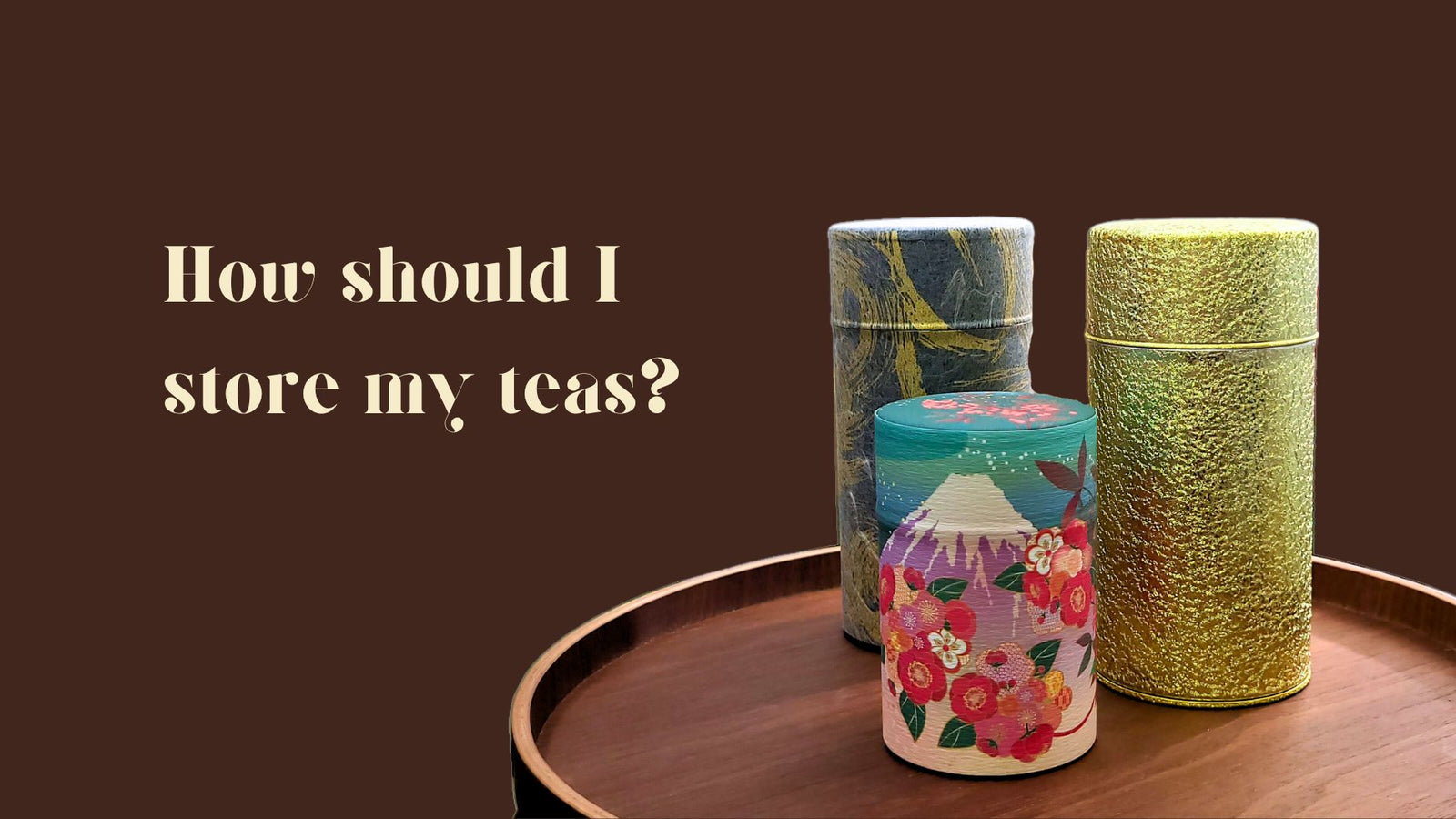You have bought great tasting tea, and now you are wondering, how to get the beautiful flavour to last for a long time. Correct storage is essential as even high quality tea can lose its flavour quickly, if stored in an unsuitable environment. But luckily, storing tea is not difficult. In this article two approaches will be introduced. First a simple, and in most cases completely sufficient way of storing tea. And after that, a way that is somewhat more complicated, but does help keep the tea in even better condition.
But whichever method you choose, the essential thing to know is what damages tea. Moisture, light, and exposure to air are all harmful to tea’s flavour, and avoiding them is key to good tea storage. So, how can you avoid them?
When you open a new package of tea you have two choices, keep it in the original package or move it into a container. If the original package is made of a sturdy material you can use it to store your tea. The important thing is that you make the bag as air tight as possible. When you are closing the bag gently push out as much air as possible. Then use a tight clip that keeps the whole open edge closed to close the bag.
But if you have tea canisters, those are often a better option for keeping the tea in a good condition. Tea canisters often feature two lids, an airtight inner lid as well as another lid that creates visual appeal and also provides some extra protection. The advantage of tea canisters is that they are more reliably air tight than a bag. While glass jars can look very beautiful filled with tea, it is better to avoid using them for tea as in a glass jar the leaves are exposed to light, which quickly causes them to deteriorate.
Other important factors to keep in mind are moisture and smells. When taking tea out of a jar with a spoon, make sure it is completely dry. And especially in countries that are humid, it is good to keep the teas in a cabinet with drying bags, or another kind of place that you can keep free from excess humidity. Tea catches smells from other food items easily, so it is good to keep it separated from strongly smelling items or areas of the kitchen where there are a lot of smells from cooking. For simple, good storage of tea, keep the tea in an airtight container that does not let in light, and keep it in an environment with low humidity and free from strong smells.
But if you are looking for an even more effective, although somewhat more complicated, way of storing tea, the following explain the storing process. Cold temperatures help preserve the flavours and aromas of tea better. Therefore, for longer term storage especially, a freezer is an ideal environment. But the difficulty is in that you need a dedicated freezer or a refrigerator, otherwise there is a significant risk of the smells of other items ruining the tea. The smells can also permeate plastic and many other materials, so while you can try to cover the tea with multiple containers or zip-lock bags, there is a high chance that the tea will get damaged.
In the case where you have a smell-safe refrigerator or a freezer, there is still one more crucial step to remember. To avoid condensation forming inside the bag and the moisture ruining the tea, you need to acclimate the package. If you are using a freezer it is best to first move the tea to a refrigerated environment for a day, then to room temperature for a day, and only then open the package. If you are storing the tea in a refrigerator you should keep it at room temperature for a day before opening.
If you do not have a dedicated cold storage space, the easiest solution is a dark, dry, and cool space like a cabinet where the tea is kept inside airtight containers. Some degradation occurs with time, but most teas should be fine for about 6-12 months in that kind of an environment, and matcha for about 3-6 months.
Ultimately storing tea is not difficult, there are just a few key things to remember. Outside of that, you can adjust the storing place to fit the space that you have available.


